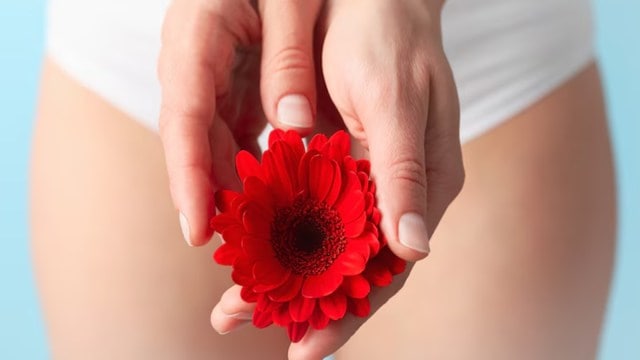📣 For more lifestyle news, click here to join our WhatsApp Channel and also follow us on Instagram
10 things a gynaecologist wants you to never do for good vaginal health
Many vaginal health issues, such as HPV or other sexually transmitted infections (STIs), often show no symptoms initially
 Learn 10 expert-backed tips to avoid common mistakes and maintain optimal vaginal health (Source: Freepik)
Learn 10 expert-backed tips to avoid common mistakes and maintain optimal vaginal health (Source: Freepik)Vaginal health is a crucial aspect of overall well-being, playing a key role in comfort, confidence, and reproductive health, yet it often goes overlooked. Dr Pooja C Thukral, a consultant obstetrician and gynaecologist at Cloudnine Group of Hospitals in Faridabad, provides insights on how to maintain vaginal health by avoiding common pitfalls.
Here are the key practices gynaecologists frequently recommend steering clear of:
1. Avoid Overusing Scented Products
Scented soaps, sprays, or douches might seem like a good idea for freshness, but they can disrupt the vaginal pH and eliminate beneficial bacteria. This increases the risk of infections like bacterial vaginosis or yeast infections. Instead, Dr Thukral advises using warm water and mild, unscented soap on the external vulva area only. Remember, the vagina is self-cleaning and does not require internal cleansing.
2. Avoid Tight or Non-Breathable Clothing
Tight clothes, such as skinny jeans or synthetic underwear, can trap moisture, creating a breeding ground for bacteria and yeast. To prevent this, choose breathable, cotton underwear and promptly change out of damp clothes, such as swimsuits or workout gear.
3. Avoid Skipping Regular Gynecological Check-ups
Many vaginal health issues, such as HPV or other sexually transmitted infections (STIs), often show no symptoms initially. Regular check-ups are essential for early detection and management. Dr Thukral emphasises the importance of routine pelvic exams and Pap smears as recommended by your healthcare provider.
4. Avoid Overuse of Antibiotics
While antibiotics treat infections, they can disturb the balance of good and bad bacteria, potentially leading to yeast infections. Dr Thukral suggests taking probiotics or consuming fermented foods like yogurt and kimchi to restore gut and vaginal flora after antibiotic use.
5. Avoid Using Tampons or Pads for Extended Periods
Prolonged use of tampons or pads can cause irritation, infections, or, in rare cases, toxic shock syndrome (TSS). Change tampons every 4-6 hours and pads at least every 6-8 hours to maintain hygiene and reduce health risks.
 Prolonged use of tampons or pads can cause irritation (Source: Getty Images/Thinkstock)
Prolonged use of tampons or pads can cause irritation (Source: Getty Images/Thinkstock)
6. Avoid Ignoring Unusual Symptoms
Unusual discharge, itching, or foul odours can signal infections or underlying health conditions. Delaying care or self-diagnosing may worsen the situation. Dr Thukral advises seeking medical advice promptly to address any concerns effectively.
7. Avoid Using DIY Remedies Without Consultation
Home remedies like inserting garlic or yogurt into the vagina may worsen infections or cause irritation. Consult a gynecologist before trying unverified treatments.
8. Avoid Having Unprotected Sex Without Knowing Your Partner’s Health Status
Unprotected intercourse can increase the risk of STIs, affecting vaginal and reproductive health. Using condoms and undergoing regular STI screenings are key steps for prevention and protection.
9. Avoid Excessive Waxing or Shaving
Excessively removing pubic hair can cause micro-tears, making the area more susceptible to infections. Instead, Dr Thukral recommends trimming hair or opting for safer methods. Bikini laser treatments can also be a hygienic and long-lasting alternative.
10. Avoid a Poor Diet
A diet high in sugar and processed foods may raise the risk of yeast infections. To support vaginal health, incorporate foods rich in probiotics, vitamins, and antioxidants into your meals. Dr. Thukral advocates for a balanced diet to enhance overall well-being.
📣 For more lifestyle news, click here to join our WhatsApp Channel and also follow us on Instagram




- 01
- 02
- 03
- 04
- 05























